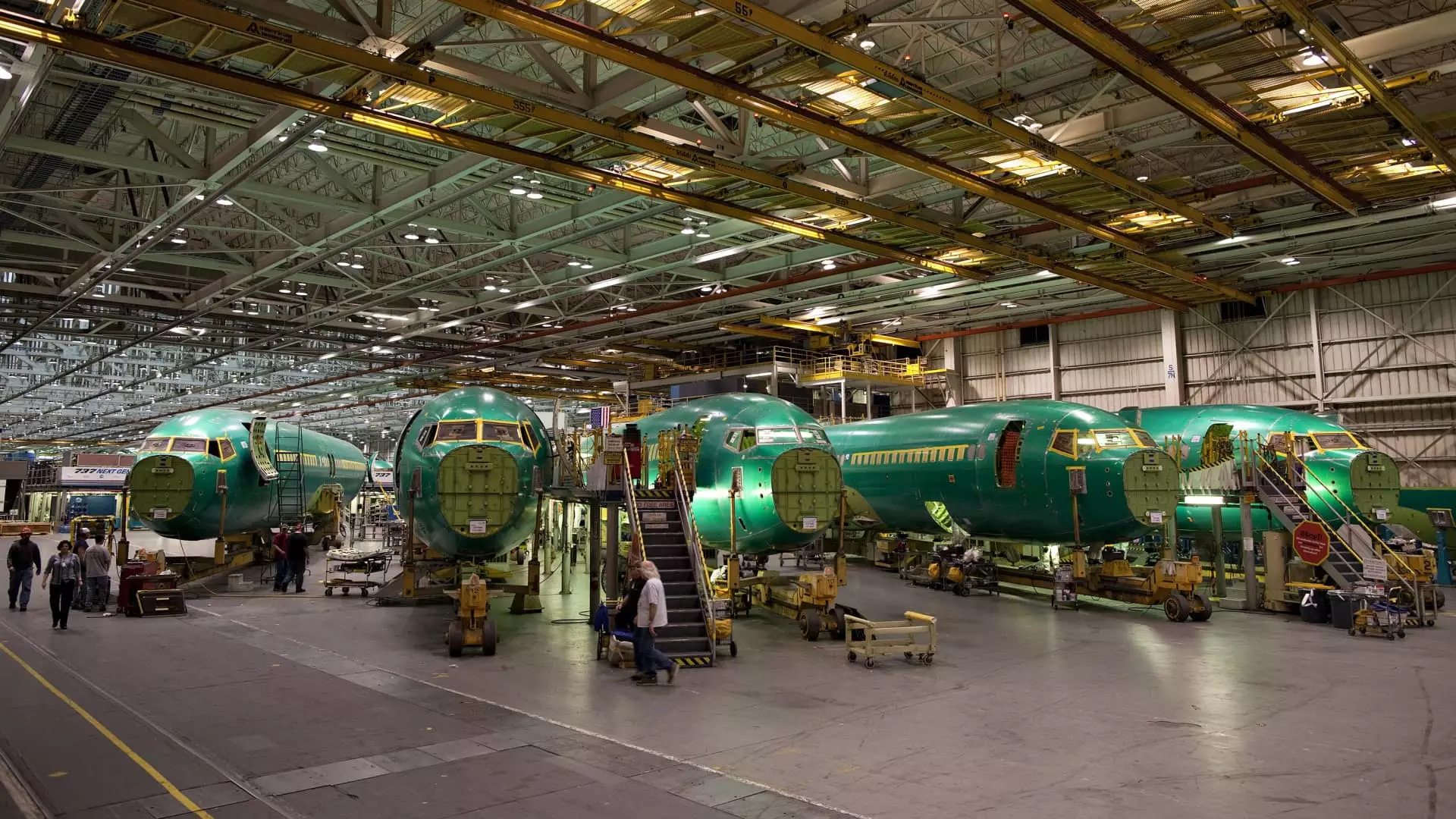Boeing recently announced its decision to purchase Spirit AeroSystems, the struggling fuselage maker, in an all-stock deal. The planemaker claims that this acquisition will help enhance safety and quality control within the company. The deal involves Boeing paying $37.25 per share in Boeing stock for Spirit, valuing the aerospace company at $4.7 billion in terms of equity. When factoring in Spirit’s debt, the total transaction value amounts to a staggering $8.3 billion.
The decision to acquire Spirit AeroSystems comes in the wake of a series of challenges faced by Boeing, including a fuselage panel blowing out midair from a relatively new Boeing 737 Max 9 on an Alaska Airlines flight. This incident led to widespread concerns about the safety of Boeing’s aircraft and triggered a crisis within the company. Spirit is responsible for manufacturing fuselages for the 737 as well as other components for Boeing’s 787 Dreamliners.
Boeing has been a significant source of revenue for Spirit, accounting for about 70% of the company’s earnings last year. The acquisition is expected to fully align the production systems and workforces of both companies, according to Boeing’s CEO, Dave Calhoun. This move is seen as a significant step in strengthening quality and ensuring that Boeing meets the highest standards in the industry.
Regulatory Approval and Future Plans
The deal is expected to close by mid-2025, subject to approval by regulators, Spirit shareholders, and the sale of Spirit’s operations dedicated to Airbus planes. There is speculation that Spirit’s CEO, Pat Shanahan, could potentially replace Calhoun in the future. Meanwhile, Airbus has also reached an agreement with Spirit to compensate $559 million for acquiring its manufacturing lines dedicated to Airbus planes.
Boeing has faced a host of production challenges in recent years, ranging from misdrilled holes in fuselages to misconnected fuselage panels. The fallout from the door-plug blowout on the Alaska flight has impacted Boeing’s aircraft deliveries and financial performance. Boeing’s shares have plunged by more than 30% this year, reflecting the severity of the crisis facing the company.
To address the issue of quality control, Boeing has implemented measures to only accept fuselages without defects, thereby reducing the chances of errors in the production process. The Federal Aviation Administration has also imposed restrictions on Boeing’s production expansion until it is satisfied with the company’s adherence to safety standards.
Congressional Scrutiny
Boeing’s safety record has come under intense scrutiny from lawmakers, particularly in the aftermath of two deadly Max crashes. Calhoun faced tough questions during a Senate hearing in June, with several Senators criticizing the company for its alleged lack of improvement in safety measures. The pressure is mounting on Boeing to address these concerns and regain the trust of regulators and the public.
Boeing’s acquisition of Spirit AeroSystems marks a pivotal moment for the company as it strives to overcome its recent challenges and improve its safety and quality standards. The success of this deal will depend on Boeing’s ability to integrate Spirit’s operations seamlessly and restore confidence in its aircraft among passengers and regulators alike.

